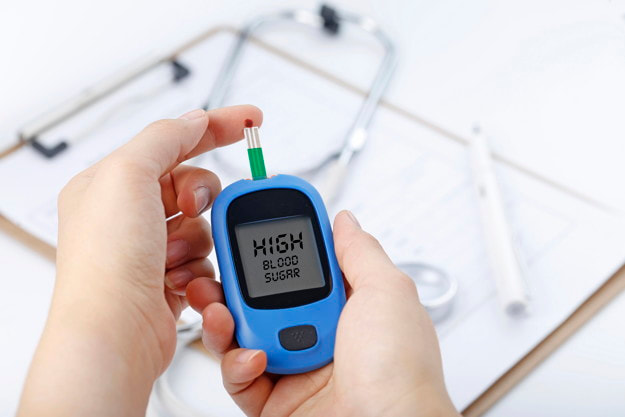 What is diabetes? Diabetes is a metabolic condition which results in an elevated fasting blood glucose level due to either a defect of our body to produce the hormone insulin, or an inability of our body to use insulin. Why is insulin important, what does it do? Insulin is a hormone that allows our bodies to use the glucose from the food that we eat for energy, and it also acts like a key that unlocks cells and allows glucose to be stored for future use. Without insulin working well, the glucose from food remains in our blood and our blood glucose levels rise to a high level. This is not normal for our bodies. When left untreated this can cause a number of consequences to our health including blindness, nerve damage, limb amputation, kidney failure, heart attack, stroke, and even death. How common is diabetes? It’s estimated that around 1.7 million Australians are living with diabetes, with one person being diagnosed every 5 minutes, and it contributes to around 11% of deaths in Australia. What are the different types of diabetes There are a number of different types of diabetes, with the most common being type 1 and type 2 diabetes Type 1 diabetes is an autoimmune disease and is commonly diagnosed in children and young adults. Type 2 diabetes is the more common form of diabetes, affecting 85-90% of all people with diabetes. While it usually affects older adults, more and more young people, even children, are developing type 2 diabetes. Unlike type 1 diabetes, your risk of developing type 2 diabetes is strongly associated with lifestyle factors such as high blood pressure, overweight or obesity, insufficient physical activity and a poor diet. How can exercise help to prevent type 2 diabetes? No one knows exactly what causes type 2 diabetes, but lifestyle factors, such as being overweight and being inactive, strongly increase your risk. Statistics show that 53% of the diabetes burden is due to overweight and obesity alone. Increasing your exercise and physical activity levels is an easy way to help reduce your risk! Can exercise help people living with type 2 diabetes? Yes it certainly can. Although there is no known cure for diabetes, exercise can be a powerful tool for managing this condition. Exercise helps to:
How much exercise is recommended? The actual dose of exercise that is recommended to prevent and to assist in managing type 2 diabetes is to accumulate 2 and a half hours of moderate intensity exercise across the week, or half that amount of high intensity exercise, in addition to 2 strength training sessions. The strength training exercises should aim to target the major muscle groups within the body.
It’s important to monitor blood glucose levels, particularly for people on insulin, before, during and after an exercise session, and it is also important to wear good supportive footwear and to check feet for problems each exercise session. Lisa Parkinson Accredited Exercise Physiologist/Diabetes Educator #Type2Diabetes
0 Comments
Your comment will be posted after it is approved.
Leave a Reply. |
AuthorSLisa Parkinson Archives
March 2024
Categories
All
|

 RSS Feed
RSS Feed